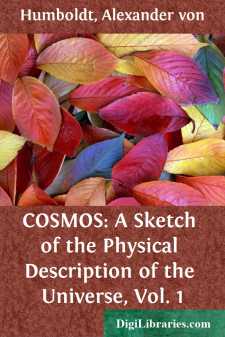History
- Africa 30
- Americas (North Central South West Indies) 50
- Ancient 68
- Asia 58
- Australia & New Zealand 8
- Canada 41
- Caribbean & West Indies 1
- Civilization 20
- Eastern Europe 12
- Europe 310
- Expeditions & Discoveries 60
- General
- Historical Geography 1
- Jewish 9
- Latin America 3
- Medieval 8
- Middle East 13
- Military 248
- Revolutionary 8
- Study & Teaching 5
- United States 353
- Western Europe 56
- World 13
General Books
Sort by:
by:
William Andrews
THE BARBER'S POLE n most instances the old signs which indicated the callings of shopkeepers have been swept away. Indeed, the three brass balls of the pawn-broker and the pole of the barber are all that are left of signs of the olden time. Round the barber's pole gather much curious fact and fiction. So many suggestions have been put forth as to its origin and meaning that the student of...
more...
by:
Matthew Luckiesh
I The human race was born in slavery, totally subservient to nature. The earliest primitive beings feasted or starved according to nature's bounty and sweltered or shivered according to the weather. When night fell they sought shelter with animal instinct, for not only were activities almost completely curtailed by darkness but beyond its screen lurked many dangers. It is interesting to...
more...
VOLUME I [p 2 is blank] p 3 TRANSLATOR'S PREFACE. ———————————- I CAN not more appropriately introduce the Cosmos than by presenting a brief sketch of the life of its illustrious author.* While the name of Alexander von Humboldt is familiar to every one, few, perhaps, are aware of the peculiar circumstances of his scientific career and of the extent of his labors in almost...
more...
CHAPTER I Shakespeare Translations in Norway In the years following 1750, there was gathered in the city of Trondhjem a remarkable group of men: Nils Krog Bredal, composer of the first Danish opera, John Gunnerus, theologian and biologist, Gerhart Schøning, rector of the Cathedral School and author of an elaborate history of the fatherland, and Peter Suhm, whose 14,047 pages on the history of Denmark...
more...
PREFACE This book is not intended to be a full or detailed history of animal morphology: a complete account is given neither of morphological discoveries nor of morphological theories. My aim has been rather to call attention to the existence of diverse typical attitudes to the problems of form, and to trace the interplay of the theories that have arisen out of them. The main currents of morphological...
more...
THOUGHTS ON HISTORY I do not propose in this paper to enter into any general inquiry about the best method of writing history. Such inquiries appear to me to be of no real value, for there are many different kinds of history which should be written in many different ways. A diplomatic, a military, or a parliamentary history, dealing with a short period or a particular episode, must evidently be treated...
more...
by:
Andrew Lang
IDon't let your poor littleLizzie be blamed!Thackeray. 'Everyone has heard of the case of Elizabeth Canning,' writes Mr. John Paget; and till recently I agreed with him. But five or six years ago the case of Elizabeth Canning repeated itself in a marvellous way, and then but few persons of my acquaintance had ever heard of that mysterious girl. The recent case, so strange a parallel to...
more...
by:
George Forbes
1. PRIMITIVE ASTRONOMY AND ASTROLOGY. The growth of intelligence in the human race has its counterpart in that of the individual, especially in the earliest stages. Intellectual activity and the development of reasoning powers are in both cases based upon the accumulation of experiences, and on the comparison, classification, arrangement, and nomenclature of these experiences. During the infancy of...
more...
by:
George Turner
CHAPTER I. Position Of The Islands—Early Visitors And Traditionary Origin. Samoa is the native name of the group of volcanic islands in central Polynesia long known as the "Navigators Islands." They are situated about 3000 miles from Sydney, and stand on the charts between the parallels of 13° and 15° south latitude, and 168° and 173° west longitude. The mountains of Savaii, one of which...
more...
by:
Sidney Lee
I I Without "the living comment and interpretation of the theatre," Shakespeare's work is, for the rank and file of mankind, "a deep well without a wheel or a windlass." It is true that the whole of the spiritual treasures which Shakespeare's dramas hoard will never be disclosed to the mere playgoer, but "a large, a very large, proportion of that indefinite all" may be...
more...











